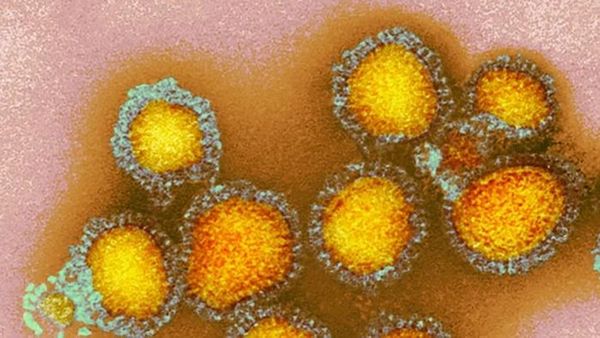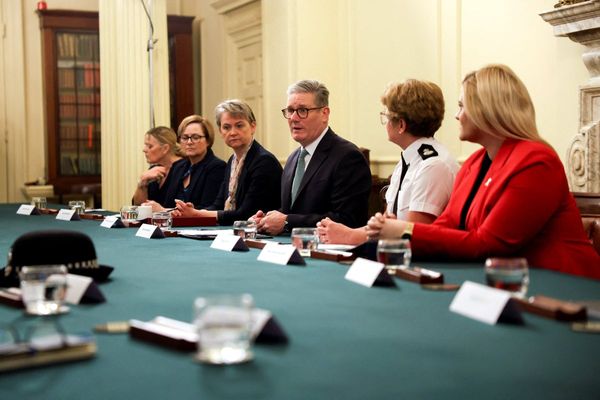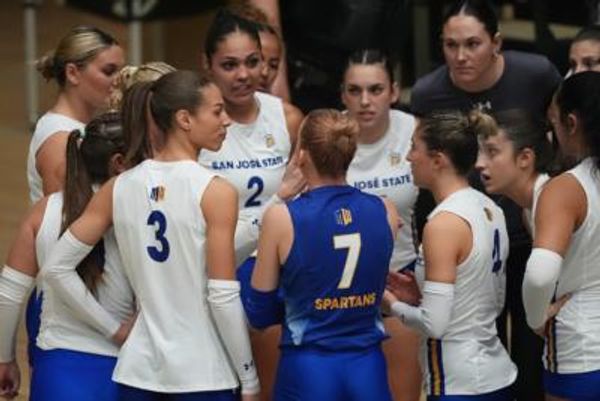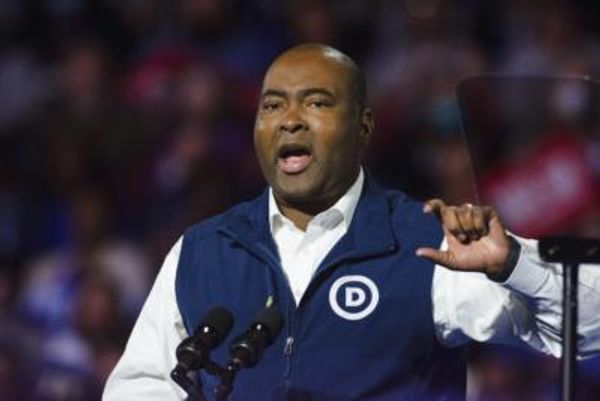WHITE PLAINS, N.Y. _ Jeffrey Epstein's name was uttered just once in the federal courtroom but his memory hovered like a cloud over Wednesday's hearing for an ex-cop who shared a cell with him on the day last July when the accused sex trafficker allegedly tried to kill himself.
The former Briarcliff Manor officer, Nicholas Tartaglione, faces a possible death penalty for the gangland-style killing of four men in a soured drug deal in Chester, about an hour north of Manhattan.
If that weren't trouble enough, he has become entangled in the Epstein saga _ because many found it curious that the most high-profile inmate in the nation would be kept in the same jail cell as an alleged quadruple killer.
Photos of Tartaglione, published at the time in the tabloid press, showed him with bulging, hulk-like muscles, although in court Wednesday he had shed some of the intimidating bulk.
Charges were announced against Tartaglione in December 2016 by then-U.S. Attorney Preet Bharara. The case tore the fabric of a small community, but for the rest of the nation Tartaglione became known for an entirely different distinction: as Epstein's cellmate at the time of the July incident. That episode is now interwoven into the former officer's defense strategy, with Tartaglione requesting the surveillance video from outside the jail cell, to prove that he helped save Epstein during the financier's abortive suicide try.
Like most everything in Epstein's life, the details of the alleged July 23 incident are murky, although it was reported he was found unresponsive with injuries to his neck at around 1:30 a.m.
Media reports citing unidentified law enforcement sources suggested at the time that the ex-cop might have actually tried to kill Epstein, possibly to prevent him from testifying about friends and associates. The disgraced financier was friends with both former President Bill Clinton and President Donald Trump, among other influential people.
Arguing before the U.S. District Judge Kenneth Karas, defense lawyer Bruce Barket said video of the incident would back up Tartaglione's story that he alerted guards to Epstein's plight. That fact could be used before a judge and jury in the trial phase.
The problem is that the Bureau of Prisons says it no longer has the video. It was accidentally destroyed. Barket called for a special hearing to explore why. The fact that the video is gone, which was reported earlier this month to great consternation, was yet another embarrassment for the Bureau of Prisons, which was eviscerated for failing to safeguard Epstein for trial.
Government prosecutors argued the video isn't needed since they aren't disputing the basic facts as spelled out by Tartaglione.
Epstein died weeks later, on Aug. 10, in what was classified as a suicide by hanging, although some, including Epstein's brother, have suggested it could have been murder.
By the time of his death, Epstein had no cellmate and was inexplicably no longer on suicide watch despite the earlier incident.
Karas stopped short of granting Barket's request for a hearing on the video. Instead, he accepted an offer from Barket for both sides to meet and try to come to some sort of a solution. Barket said in court that there was more video he is interested in but did not elaborate.
"I think we made progress," Barket said outside the courtroom, where the judge ordered both sides to present those agreed-upon facts at the next hearing March 4.
On the face of it, Tartaglione's murder case seems fairly straightforward. Bodies were found on his property and he is accused of killing the four men.
But much of the hearing Wednesday was effectively in code, referencing a parallel process handled by outside attorneys and whether that might present a conflict of interest.
Barket said he couldn't discuss it, and government prosecutor Maurene Comey, the daughter of former FBI Director James Comey, also said she was prohibited from discussing it.
Lawyers also scrapped over the contents of a cellphone found on Tartaglione in prison. Barket worried the government could see protected texts between Tartaglione and his wife and his lawyer. Karas pointed out that prisoners are not allowed to have cellphones and that the device was illegal, but agreed to have a neutral third party examine the contents to advise if it contains protected information.
The judge did not decide Wednesday on another pending request from Barket, that the Bureau of Prisons allow Barket and defense lawyers to see the jail cell shared by the two men. That would require shutting down at least part of the facility.
Tartaglione entered the courtroom looking nothing like that beefed-up body builder depicted in newspaper photos. He was fit but slender, bald with a scar across the back of his head, dressed in blue prison garb. He fist-bumped his attorney, and flashed a smile and waved to a tattooed muscular man seated in the public section. Asked afterward if he was family or friend, the man said, "I'm nobody" and ducked into an elevator.
Tartaglione, jailed for more than 30 months, has not offered comment publicly about the incident, but his lawyer said the former cop was considered trustworthy enough to share a cell with the high-profile Epstein.







